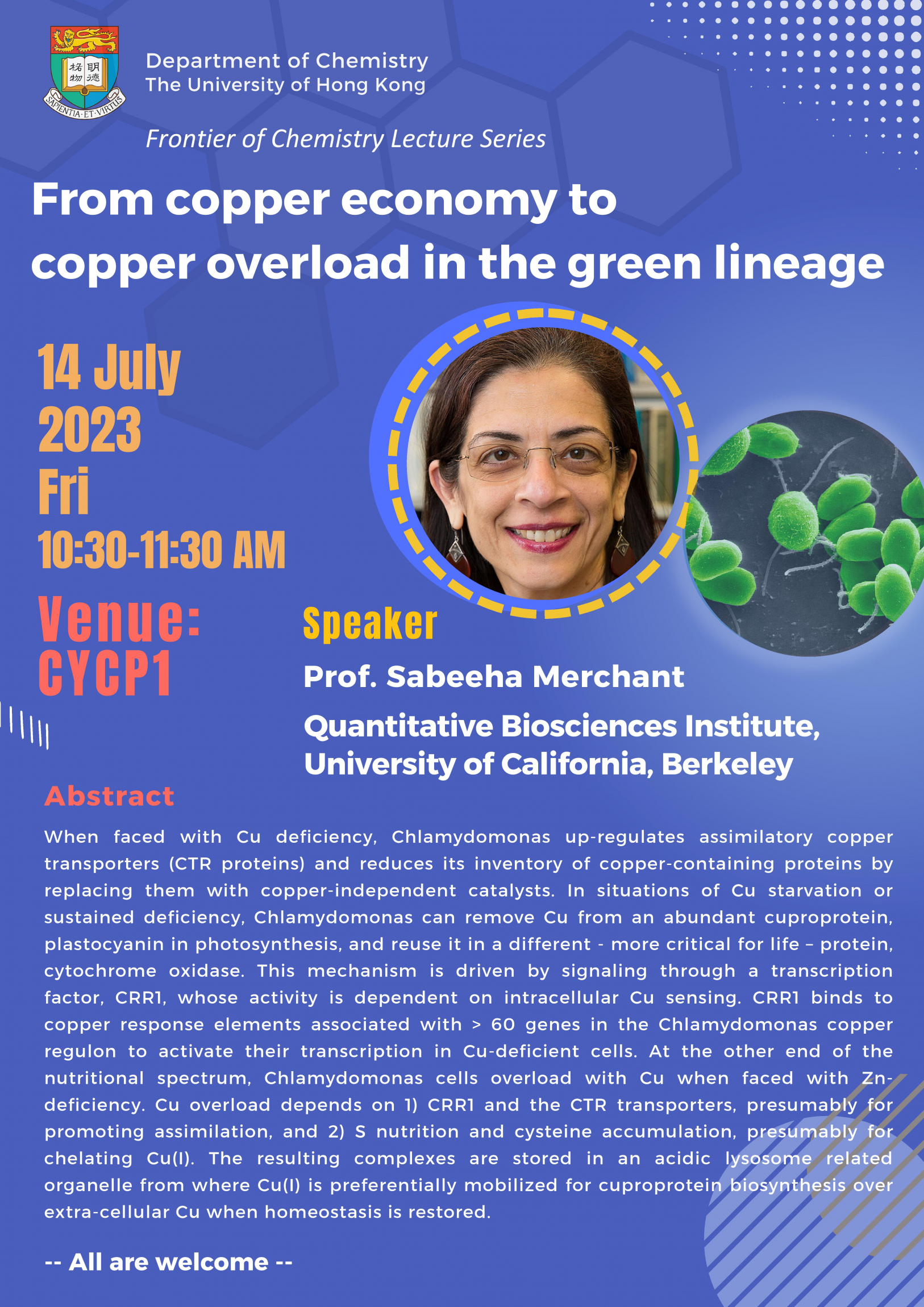| Date | 14 Jul 2023 |
| Time | 10:30 am - 11:30 am (HKT) |
| Venue | Lecture theatre P1, Chong Yuet Ming Chemistry Building |
| Speaker | Prof. Sabeeha Merchant |
| Institution | Professor of Quantitative Biosciences Institute, University of California, Berkeley |

Title:
From copper economy to copper overload in the green lineage
Schedule:
Date: 14 July 2023 (Friday)
Time: 10:30 am - 11:30 am (HKT)
Venue:
Lecture theatre P1, Chong Yuet Ming Chemistry Building
Speaker:
Prof. Sabeeha Merchant
Quantitative Biosciences Institute
University of California, Berkeley
Abstract:
When faced with Cu deficiency, Chlamydomonas up-regulates assimilatory copper transporters (CTR proteins) and reduces its inventory of copper-containing proteins by replacing them with copper-independent catalysts. In situations of Cu starvation or sustained deficiency, Chlamydomonas can remove Cu from an abundant cuproprotein, plastocyanin in photosynthesis, and reuse it in a different - more critical for life – protein, cytochrome oxidase. This mechanism is driven by signaling through a transcription factor, CRR1, whose activity is dependent on intracellular Cu sensing. CRR1 binds to copper response elements associated with > 60 genes in the Chlamydomonas copper regulon to activate their transcription in Cu-deficient cells. At the other end of the nutritional spectrum, Chlamydomonas cells overload with Cu when faced with Zn-deficiency. Cu overload depends on 1) CRR1 and the CTR transporters, presumably for promoting assimilation, and 2) S nutrition and cysteine accumulation, presumably for chelating Cu(I). The resulting complexes are stored in an acidic lysosome related organelle from where Cu(I) is preferentially mobilized for cuproprotein biosynthesis over extra-cellular Cu when homeostasis is restored.
- ALL ARE WELCOME -
